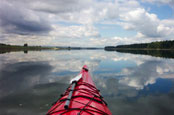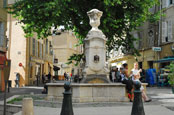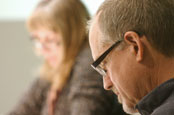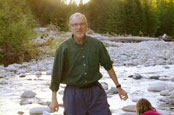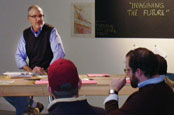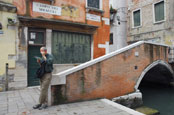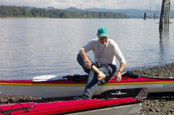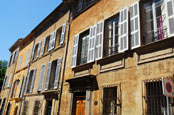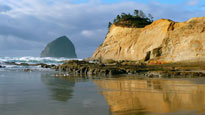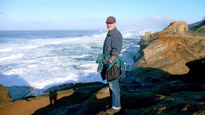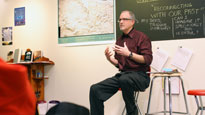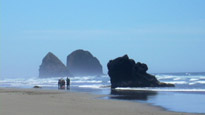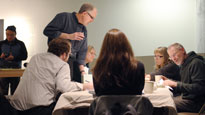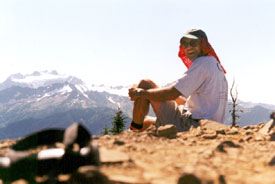 My work as a writer and teacher explores how our human world connects with the larger world of natural wildness. Here are some of the main ways I think about this:
My work as a writer and teacher explores how our human world connects with the larger world of natural wildness. Here are some of the main ways I think about this:
creativity
More than anything else, I’m captivated by the way language and imagination create new worlds. The imagination is a wild force, a form of natural process which we can partner with. This is the core insight of Wild Writers Seminars (for writers, obviously), and of the Daylighting the Invisible workshops for activists, environmentalists, and creative practitioners in any field.
the urban renaissance
I’m a nature writer who’s come home to the big city, so I’m often looking at ways to get our urban life right. We need to continue learning how to build compact, dense cities that are good human spaces – places we really enjoy living in, places enriching to the spirit and full of opportunity (for everyone, please – not just the privileged).
Such cities do not need to sprawl, but can be surrounded by farmland, timberland, wetland, open space, and wild space.
resurrection biology
The natural story is never over – it’s gathering itself into the next surprising, gorgeous, difficult chapter. “Nature bats last” they say – and this is good news. Sometimes the perspective of a longer time-scale can give heart, reminding us that destruction is always a prelude to renewal and rebuilding. Not that this excuses our civilization’s heedless dismantling of ecosystems and wasting of resources. We can be a deadly plague. We should stop it.
But, as my 2003 book Paradise Wild puts it, in the very moment that we stop our destruction – that is the moment in which nature begins recreating itself. That very second! Grass wants to grow through the cracks of our asphalt. And wild gardens will bloom in the ruins of our most grievous faults and follies. I guarantee it.
poetry
I’ve had poems recently in Orion, Rattle, December, and other poetry magazines, as well as Rattle’s “Poets Respond” and “Daily Poem by Email” features. I’m actively compiling and polishing the next poetry book.
The Heron Place won the Swan Scythe Press Award for 2015, and was published as a beautifully designed small book.
In October 2010 we organized the Whitman 150 Project, featuring a multi-voiced public read-through of the entire long poem “Song of Myself” (in honor of the 150th anniversary of the 1860 edition of Leaves of Grass). Our reading/celebration at Pacific Northwest College of Art was a huge poetic success, with 52 readers for 52 sections.
Biography
Education:
I got a Ph.D. in literature from Emory University (Atlanta) on a Danforth doctoral fellowship. Before that, my path lay through an evangelical Christian college on the west coast (Westmont College) as a place to wrestle with the inherent conflict between the rowdiness of human nature and the narrowness of the religious culture I had been raised in.
Mountains:
All the while I was becoming a scholar, I hiked and climbed, mostly in California’s Sierra Nevada mountains. I worked for four years as a climbing instructor and back-country guide for a shoestring “wilderness education” outfit. I had lots of fun, got to be one of the guys for a change, and learned about being in the mountains. We climbed our groups of semi-delinquent boys and girls up many of the best peaks on or near the Great Western Divide: Milestone, Thunder, Brewer, Jordan. Since then I’ve taken myself (often alone) through many mountains and up onto lots of peaks. I’m still having a lot of fun hiking and kayaking. That picture of the guy in the head-rag is me in the Olympic Range (Washington State) with Mt. Olympus in the background not long after I moved to the Northwest.
Where I Live and Who I Live with:
I’ve lived in Portland since 1992. This is a great town, with snow-covered volcanoes visible from a nifty, compact downtown. Portland is a great urban experiment in how the human and natural mix. I’ve curated a gallery exhibition calling for a creative-arts vision for the restoration project on Ross Island in the middle of our river – it’s been a sand and gravel mine for the last 60 years, but in the next 60 years it’s going to turn back into Eden. Across the Willamette from the island is a new high-rise condo village, allegedly “green,” where I was writer in residence and explored meaning of green urbanism with residents through workshops, collaborative poetry, and a graffiti-poetry attack on some drift-fencing along the waterfront.
My companion and partner is the visual artist Horatio Hung-Yan Law. We live in a close-in urban neighborhood. (Google his name or send me an email to catch some of his recent work locally or nationally).
The Teaching Life:
For much of my life I made my living as a college teacher of literature and writing (Johnson C. Smith University, Pepperdine University, Northrop University). After moving to Portland I was tenured at Clark College.
In recent years I was the Kittredge Distinguished Visiting Writer teaching in the Environmental Writing graduate program the University of Montana. I offered a short lecture series in the MFA program at Whidbey Writers Workshop and taught in an arts college in Brittany, France.
The Writing Life:
In both poetry and prose I am continuing to explore questions of resistance to entrenched political power. . . But also, how much deeper our lives are than politics. (A paradox, since politics is inescapable in a social species!)
My recent book The Mountains of Paris: How Awe and Wonder Saved My Life explores those fleeting moments of transcendence that contain so much joy, so strangely mixed with sorrow and sometimes even terror. We know this feeling from mountain peaks and the starry universe overhead (what used to be called “the sublime”) but also from music and art. And also in moments of human connection. What does it mean? Can’t quite be captured in words. This book is an inquiry in the form of spiritual autobiography, a mix of confession, travelogue, and coming-out story.
My other ongoing writing projects are moving deeper into the urban/natural borderlands. I’m writing about art and urbanism, music and politics and, of course, how all this fits into the wild world in which nature always gets the last word.
A feature article in Orion (May/June 2010) criticized the big-money biases of so-called Green Urbanism, and called for a more people-oriented version. We need to work on this.
I walked and kayaked the Portland Urban Growth Boundary – some 260 miles – to create a partly collaborative book about how we are learning to “live together in a civilized way” (see Books).
(See New & Current Essays, Books, Essays, and Poetry for a rundown of my writing.)
The Publishing Life:
In 2010 I created Kelson Books as a small literary press. We publish nonfiction and poetry. See the Kelson Books page elsewhere in this website, and go to www.kelsonbooks.com for more detail.
